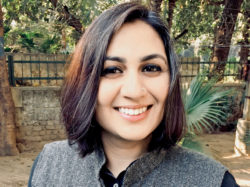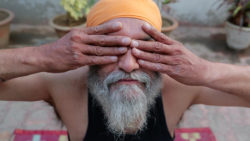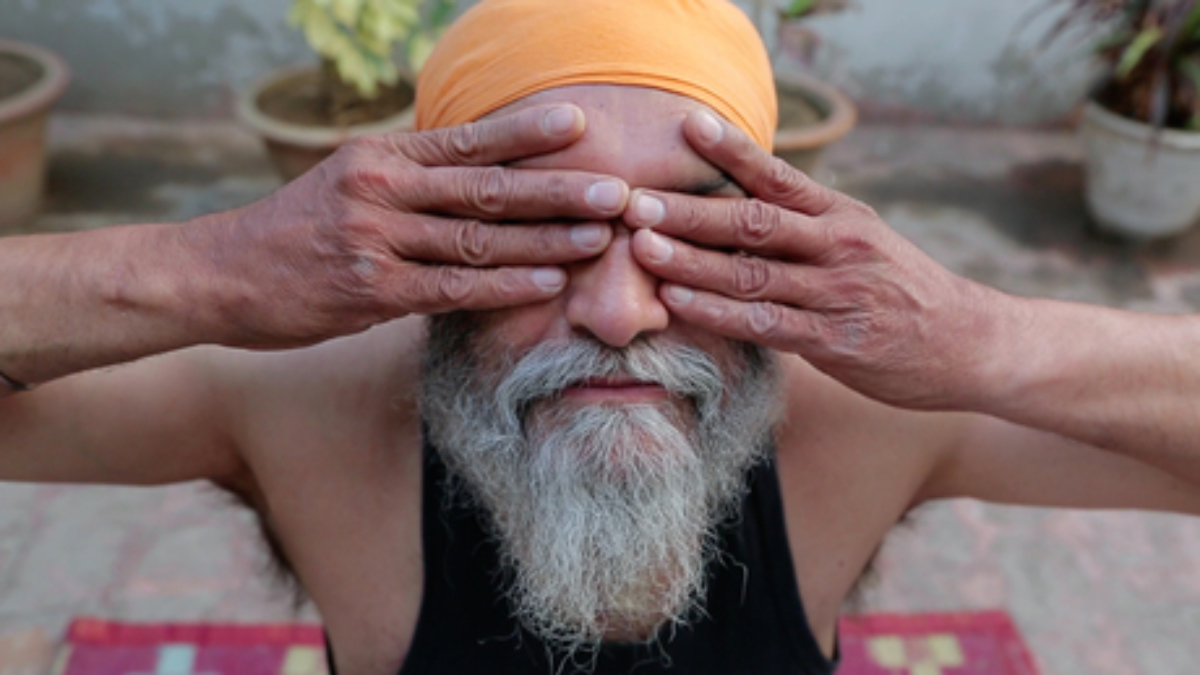Director Shilpi Gulati casts an empathetic and poetic eye on the subject of recovery, family, and women in documentary LOCK & KEY. We got a chance to chat with her about the moment that most affected her while filming, how LOCK & KEY defies conventional documentary storytelling, and the narrative that ultimately emerged in the end.
AAIFF ’41 screened LOCK & KEY as one of our documentary features. LOCK & KEY follows four recovering addicts at a rehabilitation center in Punjab, India who help families recover from the damage drugs have wrought on their lives. As the patients struggle to establish new relationships with their pasts, their wives strive to redefine the meaning of love.
 What went into your decision to pursue the subject of this documentary?
What went into your decision to pursue the subject of this documentary?
Shilpi Gulati: In August of 2015, I was invited by Hermitage, a rehab center, to collaborate on a film project. At that time, we weren’t sure if it was going to develop into a feature documentary. In fact, I had a very limited understanding of mental health and addiction in particular. It wavered over the course of the next five months that I spent time at the rehab center conducting my primary research. I was lucky to have extensive conversations with Dr. JPS Bhatia, the renowned Addiction Psychiatrist, and his team of counsellors. I also spent a lot of time with recovering addicts and their families who allowed me into their homes, shared some of their most traumatic experiences, and helped me understand addiction from a very different perspective. Over time it was clear to me that the film was not going to be a macro analysis of the drug problem in Punjab, but about the intimate experience of recovery, and the relationships and the everyday labour that goes into it.
What was one of the most significant moments that came up during filming for you?
Shilpi: There is a moment in the film when 63-year-old Satpal Kaur shows us her wedding album from the year 1977. With tears all over her face, she points to her favorite photograph which is of her as a young bride. For the longest time I wondered why she chose to point this image out to me. I could not reconcile with the fact that these extremely bold and confident women had chosen not to walk out of violent and abusive marriages. My ideas of feminism did not have the vocabulary to understand women who, for whatever reasons, had to stay. This film made me see the spirit of the women who can laugh while sharing stories of their struggle. It made me realize that it is because of them that their husbands are alive today and leading better lives. In that way, these are ordinary women with extraordinary courage. For me, more than the recovering addicts, Taala Te Kunjee (LOCK & KEY) is about the wives.
What were some of the challenges in telling such an emotional story? Did the people you interview struggle with representing their stories on camera?
Shilpi: The protagonists of my film and their partners are counselors at Hermitage Rehab Home who speak from their personal experiences. In their counseling sessions, they share some of the most gruesome details of their lives quite openly because that way they can shed light on some of the stigma associated with addiction. They want their audiences to be able to relate to the stories and realize they not alone.
Over the course of making this film, I realized it was a challenge to speak to the protagonists on camera and retain the emotion of a story which has been repeated hundreds of times to a point where a certain performance and rehearsal tends to set in. It took a friendship and an emotional bond of years to be able to represent it in the film.
 How did this documentary all come together? What did the process look like?
How did this documentary all come together? What did the process look like?
Shilpi: The film took about two years to complete. We spent about six months researching the field and shot for a year overlapped with editing process. It took us a long time to understand the theme itself and what we wanted to say through the film.
On one level, the story of every drug or alcohol addict is the same. Apart from the physical and mental abuse there is almost always a complete breakdown of familial and social structures of support. As far as the film was concerned, we categorically decided we didn’t want to sensationalize substance abuse or the larger problem of addiction in Punjab like it is done in mainstream cinema and news. Instead, we wanted to concentrate on the process of recovery. It took us a while to understand the philosophy of a process that comes with its own share of struggles, bittersweet moments, hope, and regret.
During the edit, we made the decision to not fall into a typical narrative with a universal human story, told through one or two characters with a a well defined narrative arc. While that is the preference of the international market, I did not want to navigate between the “events” that happened in the lives of my protagonists. I wanted to understand the philosophy and experience of recovery through an engagement with the past and the present, but not in a chronological manner.
Where responsibility or role do you think documentary filmmakers take on? What impact would you like LOCK & KEY to have?
Shilpi: Documentary filmmakers have the capacity to engage with the field intimately and bring out nuances of the complex social and political realities we live in. This is shrinking in mainstream journalism across the world. I am not sure if I am comfortable with burdening my film with the idea of social impact. I think it can provide a broader perspective to understanding addiction and perhaps start a conversation on the idea of recovery and rehabilitation.

